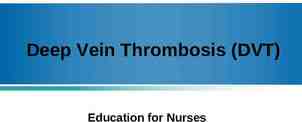Heat Stress
22 Slides233.00 KB

Heat Stress

Preparing for the heat. The average person takes about 5-7 days to adjust to hot weather. On the first day of work in a hot environment the body temperature, pulse rate and general discomfort will be higher. As the days go on, the body will become acclimated to the temperature.

Heat Illnesses. Heat Cramps Heat Exhaustion Heatstroke Fainting Heat Rash

Heat Cramps. Heat Cramps are painful muscular spasms that happen suddenly and usually immediately after exertion Usually involves the muscles in the back of the leg (such as the calf or hamstring)

Heat Cramps How to treat . – Rest in a cool place – Drink cool water and/or sports drink – Stretch the cramped muscle

Heat Exhaustion Heat exhaustion is characterized by heavy perspiration with normal or slightly above normal body temperatures It is caused by water and/or salt depletion Affects people that do not drink enough fluids while working or exercising in hot environments

Heat Exhaustion Symptoms of Heat Exhaustion – – – – – – – Severe thirst Fatigue Headache Nausea Vomiting Sometimes Diarrhea Uncontrolled Heat Exhaustion can evolve into Heatstroke

Heat Exhaustion How to treat Heat Exhaustion – Move the victim immediately out of the heat and to a cool place – Give cool liquids- cool water and/or sports drink – Raise the victims legs 8-12 inches – Remove excess clothing – Sponge victim’s body with cool water and fan – If no improvement within 30 minutes- call EMS

Heat Stroke Heatstroke is the most serious of health problems associated with working in hot environments Two types of Heatstroke exist Classic Heatstroke- Also known as the “slow cooker”- may take days to develop – Often seen during summer heat waves and typically affects the elderly and sick. – Has a 50% death rate due to affecting the elderly – Results from a combination of a hot environment and dehydration – Sweating is absent

Heatstroke Exertional Heatstroke- also know as the “fast cooker” – More common in the summer and usually affects athletes and laborers – Rapid onset does not allow enough time for severe dehydration to occur – 50% of Exertional Heatstroke victims are sweating – Classic Heatstroke victims are not sweating

Heatstroke Signs and symptoms of Heatstroke – Victim’s body feels hot when touched – Possibly not sweating – Altered mental statusconfusion/disorientation – Seizure and possible coma – Body temperature is usually 105 Deg.

Heatstroke. How to treat Heatstroke – Seek immediate medical attention-even if the victim seems to be re-covering – Move the victim immediately out of the heat – Remove clothing down to underwear – Keep the victim’s head and shoulders slightly elevated – Cool the victim quickly by using cool water and ice packed around the neck, armpits, and groin

Fainting. A worker who is not accustomed to hot environments and who stands without moving in the heat may faint With enlarged blood vessels in the skin and in the lower part of the body due to the body’s attempt to control internal temperature, blood may pool there rather than returning to the heart

Fainting. Upon lying down, the worker should soon recover By moving around, and thereby preventing blood from pooling, the victim can prevent further fainting

Heat Rash. Heat rash, also known as prickly heat, is likely to occur in hot, humid environments where sweat is not easily removed from the surface of the skin by evaporation and the skin therefore stays wet most of the time The sweat ducts become plugged, and a skin rash soon appears

Heat Rash. When heat rash is extensive or when it is complicated by infection, it can be very uncomfortable The worker can prevent this condition by resting in a cool place and by regularly bathing and completely drying the skin

Other Do not give a victim salt tablets- they can irritate the stomach and cause nausea and vomiting

Other. Drinking Water – In the course of a day’s work in the heat, the body may produce as much as 2-3 gallons of sweat – Because so many heat disorders involve excessive dehydration of the body, it is essential that water intake during the workday be about equal to the amount of sweat produced

Other Drinking Water cont – Most workers exposed to hot conditions drink less fluids than needed because of an insufficient thirst drive – You therefore should not depend on thirst to signal when and how much to drink – You should drink about 5-7 ounces of fluids every 15-20 minutes to replenish the necessary fluids in the body

Other. People with heart problems or those on low sodium diets who work in hot environments should consult their physician about what to do under these conditions.

Questions: Yes or No For Heat Cramps, stretch a cramped leg muscle Yes Salt tablets can be given to victims of any hea illness No Move heat illness victims out of the heat to a cool place Yes

Questions: Yes or No Heat Exhaustion victims need immediate medical attention- it’s a life threatening situation No Heat Stroke victims need immediate cooling Yes by any means possible






